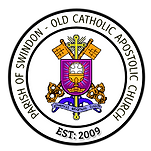On the roads in Wiltshire - Priest On Call
- Father Paris Haines
- Dec 14, 2024
- 4 min read
Updated: Jan 16

"Is anyone among you sick? They should summon the priests of the Church to pray over them, anointing them with oil in the name of the Lord. The prayer of faith will save the sick, and the Lord will raise them up; and anyone who has committed sins will be forgiven." James 5:14-16. There are certain moments in a Christian's life when the presence of the Church offers both comfort and healing. One such occasion is during an illness that significantly affects the life of the individual, requiring special care from family, physicians, friends, and the staff of hospitals, nursing facilities, and hospice.
This pastoral care should be provided by the local Catholic parish where the sick person is registered throughout the duration of their illness, not solely when the illness becomes more severe. The information provided below aims to help all caregivers understand the Catholic Church’s commitment to providing consistent and grace-filled care for those who intimately experience the suffering of Christ.
What is the Sacrament of the Sick?
Historically, the Sacrament of the Anointing of the Sick was referred to as Extreme Unction or the last rites, due to factors such as high mortality rates and a focus on spiritual cleansing. The Sacrament of the Anointing of the Sick includes the opportunity for the Sacrament of Reconciliation, the rites of Anointing, and Viaticum. Viaticum is the final administration of Holy Communion to a person nearing death. The "last" Sacrament is Viaticum, the Holy Eucharist, provided in a special ritual, considered "food for the journey" as a person transitions from this life. Viaticum means "with us on the way." The Sacrament of the Anointing of the Sick is intended for those who are seriously ill, while Viaticum, the Eucharist, is for the dying. The Sacrament of the Anointing of the Sick involves a Catholic priest praying over, laying hands on, and anointing the ill person on the forehead and hands with the Oil of the Sick. This special holy oil is blessed by the Bishop annually during the Chrism Mass, held around Holy Thursday. Each Catholic parish receives a portion of this blessed oil for use in the Rite of Anointing.
Who Can Administer the Anointing of the Sick?
The Sacrament of the Anointing of the Sick can only be administered by a bishop or a priest. Deacons or laypersons are not authorized to perform this sacrament. However, all Christians are encouraged to pray for, visit, and show compassion to the sick.
When Should I Call a Priest? Which Priest Should I Call?
The parish priest of the ill individual should be notified as soon as a serious illness occurs or when major surgery is scheduled, to allow for the administration of the Sacrament of the Anointing of the Sick, and if possible, the Sacrament of Reconciliation. Pastoral care should be requested as soon as a person faces the danger of illness or is chronically ill, especially if elderly. Throughout the illness, Holy Communion should be offered to the sick individual as often as feasible, either by the local Catholic parish or by Ministers of Holy Communion serving the parish or local hospital. In hospital environments, where patients come from various Catholic parishes, clergy and lay ministers providing routine pastoral care should be informed of the patient's condition. These individuals typically organize prayer services and coordinate Eucharistic ministry. When death is imminent, if the patient is in a facility offering Catholic pastoral care, the facility's pastoral care staff should be informed first to administer Viaticum [Holy Communion for the Dying]. If the patient is in a hospital without such care or at home, the local pastor should be contacted for pastoral care. After death, the deceased person's Catholic parish office should be notified to offer ritual prayers for the dead and begin funeral arrangements. Funeral arrangements should commence with contacting the deceased's local parish office, and no arrangements should be finalized without this initial contact.
How Seriously Ill Does a Person Have to Be to Receive This Sacrament?
Any individual seriously ill due to sickness, old age, or injury may be anointed. The illness may be physical or mental. The ritual suggests that a person should be anointed early in the illness or before undergoing serious surgery. The anointing can be repeated if the medical condition worsens or if the person experiences a different illness or injury. However, it is unnecessary to repeatedly anoint an individual who is ill. God's compassion and faithfulness remain with the sick person throughout their illness.
What Should I Do if the Person is Unconscious?
The Sacrament of the Anointing of the Sick can be administered to an unconscious person. In such cases, the Church relies on the family's request and assumes the ill individual would have sought the anointing if able.
Should Someone Receive the Anointing of the Sick After Death?
Since all Church Sacraments involve an encounter between a living person and God within the Church community, anointing a deceased individual is not possible. However, the ritual provides official prayers for the deceased and consolation for the living as part of the Church's pastoral care.
The Church faces the significant responsibility of continuing Jesus' healing work in the world. Please be assured of the Church's prayers for you and your loved one who is ill.
.png)




Comments